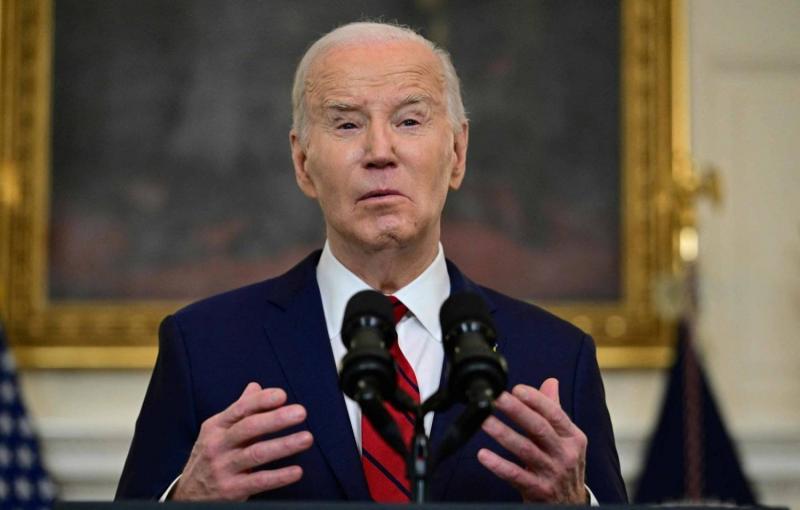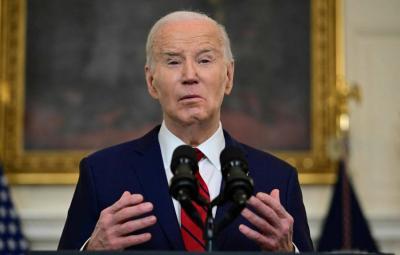U.S. President Joe Biden outlined a three-phase plan to stop the war in Gaza, which I have named the "parachute plan," as it lacks important details, including what will happen the day after in Gaza and who will govern it! One of the most notable omissions from the plan, and the discussions following it up to this writing, is the absence of any mention of the Palestinian Authority, either now or in the future, as if the plan was solely made to stop the fire, leaving everything else as mere details.
We have not witnessed a complementary statement to this plan except for what was included in the Saudi Foreign Ministry's statement on Monday during a virtual meeting attended by Saudi Arabia, Egypt, the UAE, Jordan, and Qatar to discuss the "proposal" presented by President Biden. The foreign ministers stressed the "importance of treating the U.S. president's proposal seriously and positively to reach an agreement that ensures a permanent ceasefire and sufficient aid to all regions of Gaza, thereby ending the suffering of its people."
The ministers affirmed the "necessity of halting the aggression against Gaza and ending the humanitarian disaster it causes, returning displaced persons to their areas, and the complete withdrawal of Israeli occupation forces from the Strip." Following this, the ministers' statement addressed what they considered the most important issue. They emphasized the need to "launch a reconstruction process within a comprehensive plan for implementing the two-state solution according to relevant UN Security Council resolutions, with specific timelines and binding guarantees." They also underscored a very important matter: "The implementation of the two-state solution, which embodies an independent Palestinian state with sovereignty along the lines of June 4, 1967, with East Jerusalem as its capital, to live in security and peace alongside Israel, in accordance with relevant international legitimacy resolutions, is the way to achieve security and peace for all in the region."
This specifically requires Palestinian leadership to achieve it, and prior to that, capable Palestinian leadership to manage every transitional phase in Gaza, starting now, not just at the launch of the proposed three phases by President Biden. This necessitates the presence of the authority and its participation from now in the negotiations, regardless of any criticisms directed at the authority, its management style, or its figures. There is no one worse than Netanyahu or Sinwar in this regard.
Thus, just as the five foreign ministers filled the gaps in the American proposal, what is now required is to continue under the principle of "take and negotiate." It is true that the ministers accepted and supported the American proposal, but the current role is to remind everyone of the role of the Palestinian Authority and the necessity of its presence in all negotiations, starting with President Biden's proposal. The importance of supporting the authority now is greater, especially after the Iranian leader's call for "Hamas" not to accept a ceasefire, while endorsing the events of October 7.
The presence of the authority in all negotiations is crucial, whether successful or unsuccessful, as it will inform Israel and "Hamas" that the authority is the one that should govern Gaza. This also helps "Hamas" to wake up and "play politics," if only for once since its establishment, by aligning itself under the authority.




